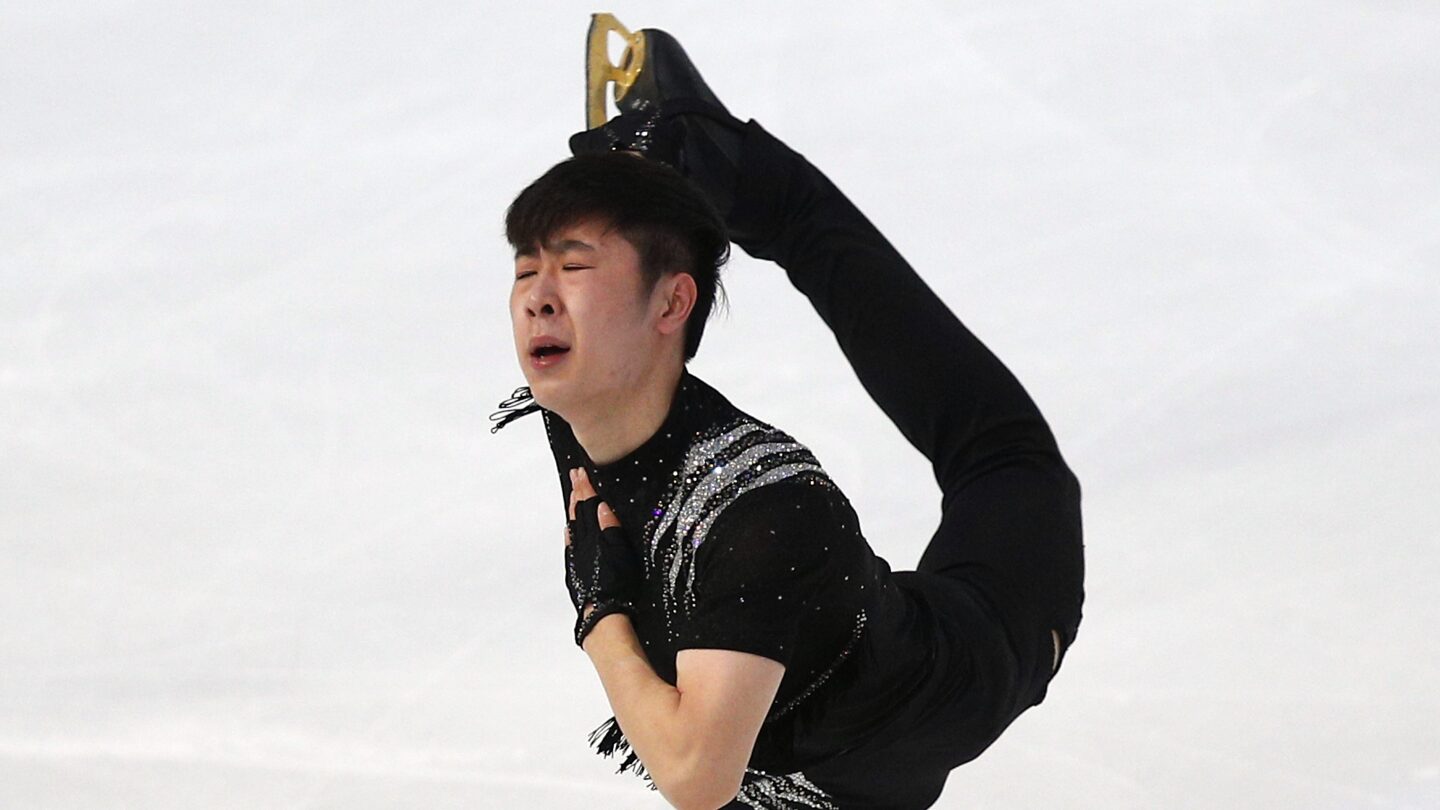GRENOBLE, France — China’s Jin Boyang, the 2016 and 2017 World bronze medalist, is considered part of the original “quad squad” that took figure skating by storm these last three years (Yuzuru Hanyu, Shoma Uno, Nathan Chen and Jin). Jin was the first to land a quad Lutz-triple toe combination.
He was also nearly the first Chinese male singles skater to earn an Olympic medal, placing fourth in PyeongChang.
His follow-up Grand Prix campaign was a nightmare. He was fifth in Helsinki earlier this month and ninth at Internationaux de France last week.
Jin didn’t have high expectations for the fall events, attributing poor results to media pressure and logistical problems.
It started in the summer, when the Chinese federation announced that Jin would relocate to Toronto to train in Brian Orser’s camp. That struck like a hammer to Jin’s head.
“I felt a lot of pressure ... both from the media and from my friends,” he said through an interpreter in Grenoble. “I was overwhelmed by that pressure.
“But it’s not the right place for me to speak of it at this moment. I’d like to be known for what I’m doing in competition, not because of these stories.”
It soon became apparent that Jin would stay in China.
Jin’s travel to both of his Grand Prix events was delayed. For Helsinki, the name on his ticket was different than the name on his passport.
“The day I was due to leave for France, I still had not received my visa,” he said. “I first had to re-book my flight for the next day. Then I was expecting my visa that day, but at 5:30 p.m. it was still not there, and the French embassy was closing at 6 p.m. I had to fly the next morning at 2 a.m.”
He was on the ice Thursday, one day before competition started.
“My practice sessions went rather well in Grenoble, but I certainly lacked confidence on the competitive ice,” Jin said. “It’s not that it created a big mental problem for me, but missing a flight three times can destabilize you, for sure.”
One thing was most visible in Grenoble, however: Jin improved his artistry significantly.
“After the Games I could spend a lot of time with Lori Nichol, my choreographer, discussing what kind of movements I could present in competition,” he said. “She told me to be a happy skater, a happy Boyang. She gave me confidence.”
Jin also disclosed a slice of his own personal history that few were aware of: his ballet past, something he shares with Chen.
“I was a good dancer as a child. I trained in ballet, Latin dances, jazz, you name it,” he said. “When I started to skate competitively, I was short, and I had to forget about ballet to start learning jumps. I had to focus on jumps, and I think that’s when I forgot about ballet.
“Coming back to dance now, I feel that I am now closer to the ideal skater I wanted to be originally. I have hired a Flamenco teacher myself to teach me the movements. I am also reviewing a lot of shows and TV videos to help me improve my artistry.”
Writer Feng Xiao interpreted the Jin interview.
As a reminder, you can watch the ISU Grand Prix Series live and on-demand with the ‘Figure Skating Pass’ on NBC Sports Gold. Go to NBCsports.com/gold/figure-skating to sign up for access to every ISU Grand Prix and championship event, as well as domestic U.S. Figure Skating events throughout the season. NBC Sports Gold gives subscribers an unprecedented level of access on more platforms and devices than ever before.
OlympicTalk is on Apple News. Favorite us!









